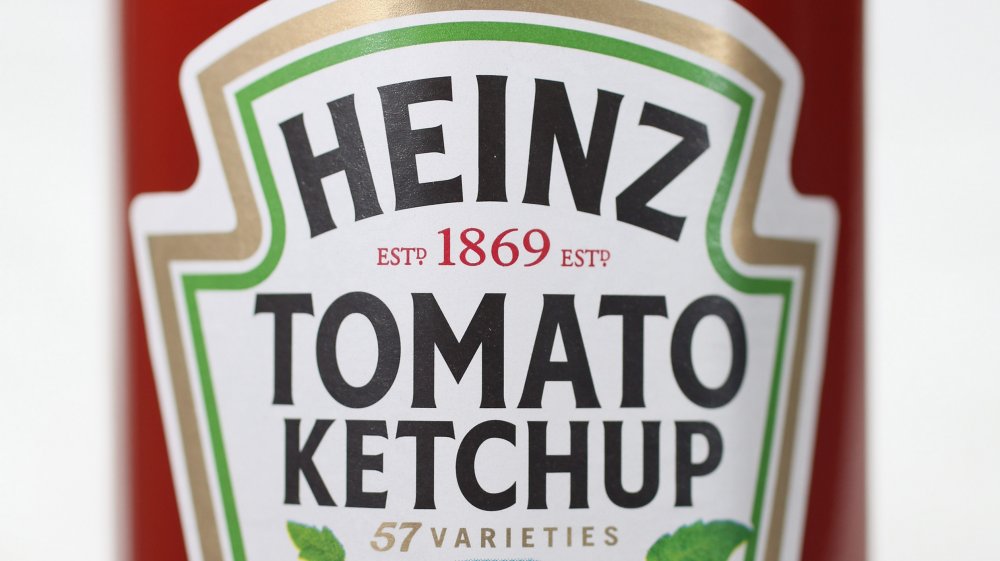The Surprising Way Ketchup Was Used In The 1800s
French fries are for novices. A true fan knows that you can eat just about anything with ketchup. Just ask Food52's forum, where people go wild over bananas and ketchup, cottage cheese and ketchup, Greek yogurt and ketchup, and grapes and ketchup. The list goes on. Little wonder that Heinz makes enough ketchup to give everyone on earth two single-serving packets a year.
Tomato-based ketchup wasn't always a must-have, though. In fact, according to Smithsonian Magazine, in the 1700s, Europeans thought that tomatoes were "poison apples." The long and short of it is that rich people, who imported tomatoes from South America, were getting sick and dying after eating these delicacies off of their expensive, pewter plates. However, it wasn't because of the tomatoes — it was the pewter. Since tomatoes are acidic, they leached lead from the pewter plates and killed unsuspecting, tomato-loving aristocrats.
Tomatoes were taboo, yes. That doesn't mean, however, that people shied away from ketchup. What was ketchup made of, though, up through the 1700s? It was actually thin, dark, fermented fish sauce, with nary a tomato to be found (via National Geographic). It wasn't until the 1800s that tomatoes melded with ketchup to make a surprising, world-changing comeback.
1800s ketchup: A miracle too good to be true?
Heinz didn't make it onto the ketchup scene until 1869. But it was in 1834, in the hands of Dr. John Cook Bennet, that tomato ketchup caught its big break (via Ripley's). Bennet marketed ketchup not as a condiment, but as a cure-all in the form of a ketchup pill. Got diarrhea? Get some ketchup. Skin a little yellow? Grab some ketchup. Got indigestion? Don't sweat it — ketchup's got your back (via Mental Floss). In the early 1800s, ketchup was touted as a medicinal miracle.
Don't laugh yet. It turns out that tomatoes can do extraordinary things for your health. According to a study published in the Journal of Pharmacognosy and Phytochemistry, eating tomatoes can decrease your risk of osteoporosis, and lung, prostate, stomach, cervical, breast, oral, colorectal, esophageal, and pancreatic cancers. Bennet may have been on to something, after all. Unfortunately for him, ketchup pills were a relatively short-lived phenomenon. According to Ripley's, by the 1850s, Bennet had gone out of business. Copycats selling laxatives as tomato pills eventually discredited the medicine.
Americans' taste for tomatoes, however, had grown. Enter Heinz, and the rest is history.

